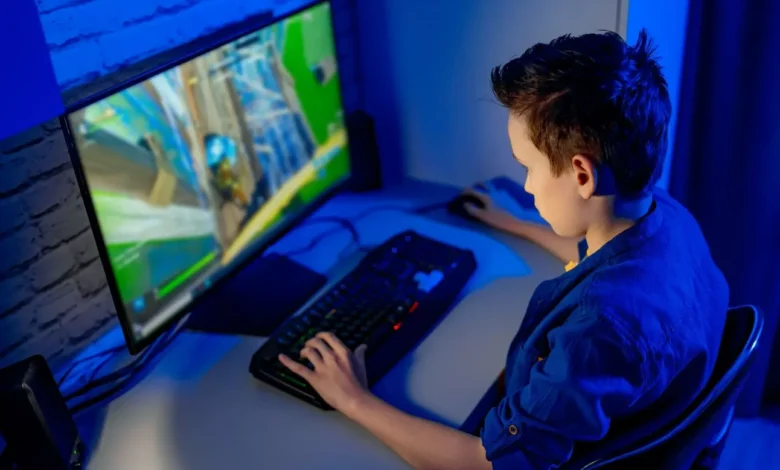Leveling Up: The Societal Impact of Online Gaming in the Digital Age

In an era defined by rapid technological advancement, online link slot gacor has emerged as a dominant cultural force, influencing not just the entertainment landscape but also various aspects of social interaction, education, and mental health. As millions of players immerse themselves in virtual worlds, the effects of online gaming extend far beyond the screen, shaping societal norms and individual experiences. This article delves into the multifaceted impact of online gaming on modern society, highlighting its potential to foster community, creativity, and personal growth.
1. The Rise of Virtual Communities
Online gaming has cultivated a vast array of virtual communities where players can connect with like-minded individuals. These communities provide a sense of belonging and friendship, often leading to lifelong relationships. Through cooperative gameplay and shared experiences, gamers create strong bonds that enhance their social lives, proving that the digital world can foster genuine connections.
2. Development of Communication Skills
Successful online gaming often hinges on effective communication, particularly in team-based formats. Players must convey strategies, provide feedback, and make decisions collaboratively. This necessity for clear communication not only enhances players’ verbal skills but also develops their ability to listen and work constructively with others—skills that are invaluable in both personal and professional environments.
3. A Platform for Identity Exploration
Online gaming allows players to explore different identities through customizable avatars and immersive storylines. This freedom to experiment can lead to greater self-awareness and acceptance, as individuals navigate various roles and scenarios. For many, gaming becomes a safe space to express themselves and explore aspects of their identity that they may feel uncomfortable addressing in the real world.
4. Cognitive Development and Problem-Solving
Research indicates that online gaming can improve cognitive abilities such as spatial awareness, critical thinking, and problem-solving. Many games present complex challenges that require players to think strategically and adapt quickly. These cognitive exercises can translate into improved academic performance and everyday decision-making skills.
5. Emotional Well-Being and Stress Relief
For countless players, online gaming serves as a valuable outlet for stress relief. The immersive nature of games provides an escape from daily pressures, allowing individuals to unwind and recharge. Additionally, the support offered by gaming communities can mitigate feelings of loneliness and anxiety, fostering a sense of camaraderie among players.
6. Innovative Educational Tools
The educational potential of online gaming is increasingly recognized in academic settings. Many developers are creating games that incorporate educational content, transforming learning into an engaging and interactive experience. This gamification of education encourages students to take an active role in their learning, making subjects more accessible and enjoyable.
7. Creativity and Artistic Expression
Online gaming stimulates creativity by allowing players to design characters, create narratives, and build virtual worlds. This creative outlet nurtures innovative thinking and artistic skills, providing players with opportunities to express themselves. Many individuals channel their passion for gaming into careers in game design, digital art, and storytelling.
8. The Emergence of Streaming Culture
The popularity of streaming platforms like Twitch and YouTube has revolutionized how gaming is shared and experienced. Players can showcase their skills and engage with audiences in real time, creating vibrant communities built around shared interests. This phenomenon has not only elevated gaming culture but has also opened new avenues for content creation and monetization.
9. Esports: A New Frontier of Competition
The rise of esports has transformed online gaming into a competitive arena, attracting millions of fans and participants. Professional gamers compete in high-stakes tournaments, showcasing their skills and strategies. This competitive landscape instills discipline, teamwork, and strategic thinking among players, while also paving the way for lucrative career opportunities in the industry.
10. Social Responsibility and Advocacy
Many online games address important social issues, such as mental health, diversity, and environmental sustainability. By integrating these themes into gameplay, developers encourage players to engage with real-world challenges and inspire action. This awareness can lead to advocacy efforts, empowering players to make a positive impact in their communities.
11. Economic Awareness and Financial Literacy
The virtual economies created within online games provide players with insights into economic principles. Buying, selling, and trading in-game items can teach valuable lessons about supply and demand, budgeting, and resource management. These experiences can enhance players’ financial literacy, equipping them with skills applicable to real-world scenarios.
12. Conclusion
The societal impact of online situs slot gacor is profound, shaping how individuals connect, learn, and grow. As players immerse themselves in virtual worlds, they gain valuable skills and experiences that enrich their lives and foster community engagement. By recognizing and embracing the positive potential of online gaming, we can harness its influence to create a more connected and innovative society. As technology continues to evolve, the implications of online gaming will only expand, offering new opportunities for personal development and collective progress in the digital age.



